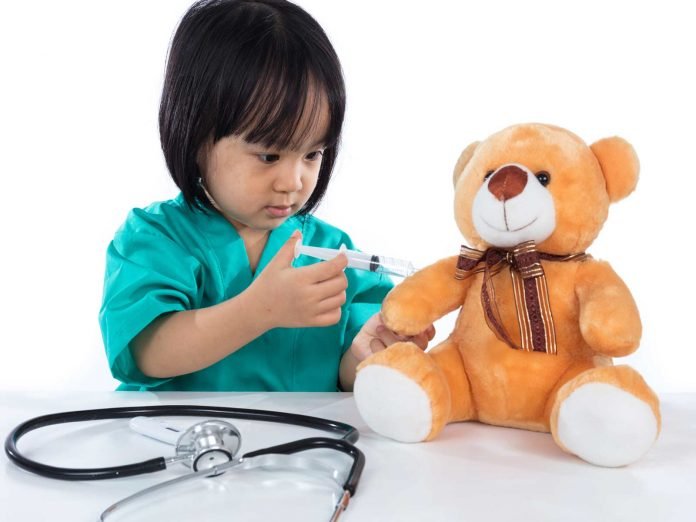The anxiety before receiving a shot is common, no matter how old your child is. Even I as an adult get the jitters sometimes. Here’s a few helpful tips to help prepare your kid for for future vaccinations.
For most children, the mere thought of having a needle inserted into their arms is extremely upsetting. Anxiety before receiving a shot is common, no matter your child’s age. That worry is often heightened when more than one vaccine is given at a time. In some cases, four injections are given during a single doctor’s visit.

To make the experience smoother, prepare your kids in advance for the vaccines they’ll be receiving. If your child is old enough to understand, graciously explain how the shots will help them avoid becoming sick. Never describe the shots as punishment or use them as a threat.

For most young children and babies, you can soothe and cuddle them to help them get through an immunization, and rock them afterward to decrease their crying. Holding your child on your lap may also help calm them.
For older children, it may help to distract them during and after each shot. Try “blowing away the pain” or use soap bubbles, pinwheels or music to divert their attention. Telling them stories or reading their favorite books to them may help as well. Some older children feel better hugging their parent, chest to chest, when the shot is given. If your doctor believes it is appropriate, let older kids choose the site of the injections, giving them a sense that they have a degree of control over the process.
Afterward, if a mild fever develops, ask your doctor about giving your child acetaminophen to make them more comfortable.
Why do Children Need Vaccines?
When germs such as bacteria or viruses invade the body, they attack and multiply. This invasion is known as an infection, and the infection is what causes illness. The immune system then has to fight the infection. Once it fights off the infection, the body has a supply of cells that help recognize and fight that disease in the future. These supplies of cells are called antibodies. Vaccines help develop immunity by imitating an infection, but this “imitation” infection does not cause illness. Instead it causes the immune system to develop the same response as it does to a real infection so the body can recognize and fight the vaccine-preventable disease in the future. Sometimes, after getting a vaccine, the imitation infection can cause minor symptoms, such as fever. Such minor symptoms are normal and should be expected as the body builds immunity.

As children get older, they require additional doses of some vaccines for best protection. Older kids also need protection against additional diseases they may encounter.
I hope this article is helpful as we need to be extremely conscious about the health of our children and little ones.
Well said @seajae I have a 3 months + old daughter and it breaks my heart when she's being injected but I cuddle her whenever I can and breastmilk helps too in soothing her when she's in pain.
Awww. Babies are the best dear. I hope the article helped in some way with information?
Some vaccines are good and some vaccines are bad. Many of the flu vaccines give people the flu and I do not get flu vaccines and I do not get the flu and Bill Gates vaccines murdered people in India. Big Pharma kills people. Oprah too.
Congratulations @seajae! You have completed some achievement on Steemit and have been rewarded with new badge(s) :
Click on any badge to view your own Board of Honor on SteemitBoard.
For more information about SteemitBoard, click here
If you no longer want to receive notifications, reply to this comment with the word
STOP